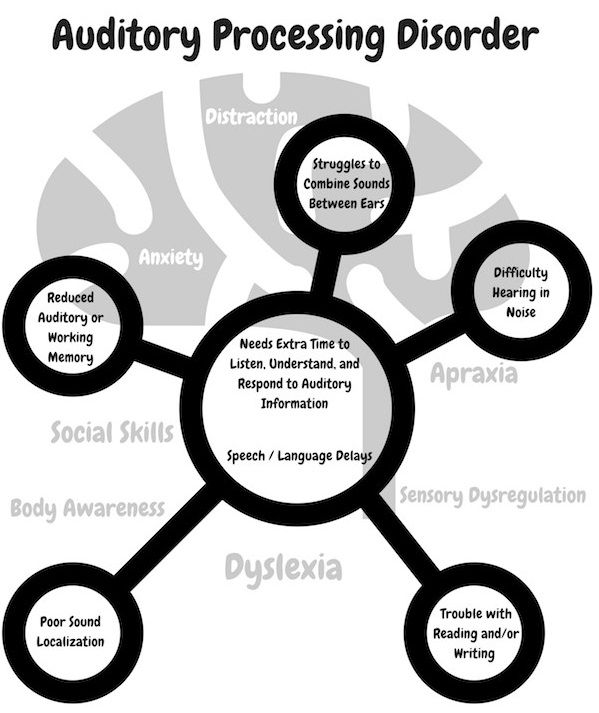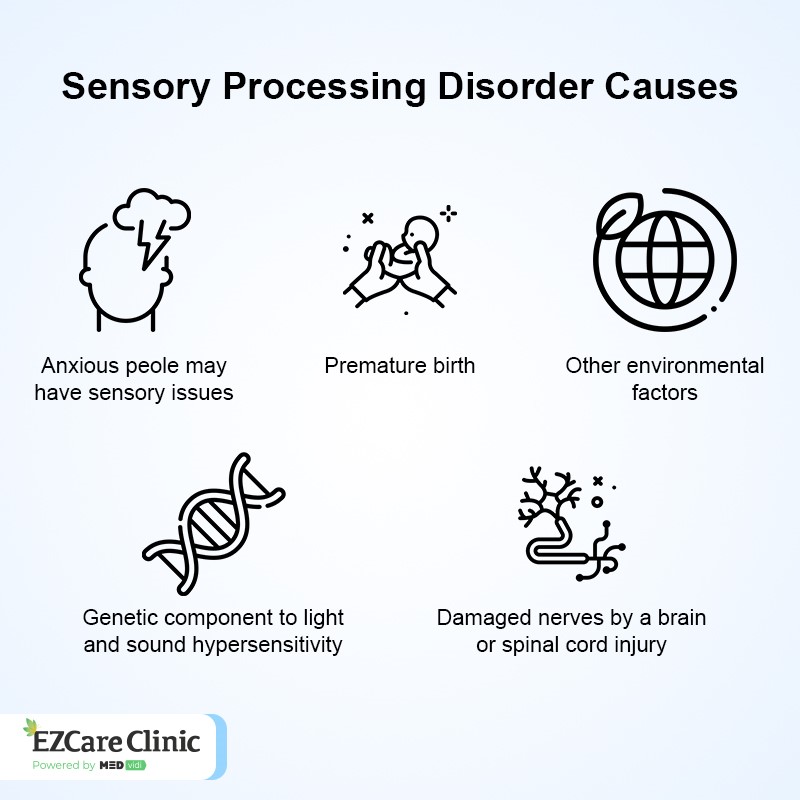
Auditory processing refers to the ability of the brain to understand and interpret sounds received by the ear. It is a complex process that involves several neural pathways and cognitive functions. While auditory processing issues are commonly associated with children, they can also affect adults. In this article, we will explore the causes and signs of auditory processing issues in adults and discuss how teachers can help students with these challenges.
What Is Auditory Processing Disorder?
Auditory Processing Disorder (APD) is a condition where adults and children have trouble understanding spoken communication owing to the way their brain interprets sound. Since this is a hearing issue, the ears are not generally affected.

People with APD are known to have normal hearing as assessed by hearing tests and routine hearing screenings as neither of them can catch this disorder. Even though conversations about APD usually focus on school children adults can also have this condition. Let us see how you as educators can deal with this condition while teaching adults.
Causes of Auditory Processing Issues in Adults

Auditory processing issues can arise due to a variety of reasons. Some of the common causes of auditory processing issues in adults are:
Signs of Auditory Processing Issues in Adults
Auditory processing issues can manifest in various ways. Here are some common signs of auditory processing issues in adults:
How Can Teachers Help Students with Auditory Processing Issues?
Teachers can play a crucial role in supporting students with auditory processing issues.
Here are some strategies that teachers can use to help students with auditory processing issues:
To End With
Auditory processing issues can be challenging for adults, but with the right support and strategies, individuals with auditory processing issues can lead successful and fulfilling lives. Identifying such disorders can be difficult if you do not have proper certifications, consider pursuing learning disabilities courses for teachers to support students with auditory processing issues, by using a range of strategies and technologies to help them access and process information more effectively. By creating a safe and supportive environment, teachers can help students with auditory processing issues build confidence and reach their full potential.
Get In Touch
UK – Registered OfficeAsian College Of Teachers Ltd (UK)
27, Old Gloucester Street, London – WC1N 3AX, UK
UK Toll Free: 0-808-189-1203
www.asiancollegeofteachers.co.uk
All SEN Courses are designed, developed and created by Asian College of Teachers Ltd, United Kingdom. These courses are certified by CPD Certification Service UK and endorsed by NCC Education, UK, and Short Courses from CACHE, UK through Laser Learning UK.
Asian College of Teachers (ACT) undertakes a continuous review of its teacher training courses to ensure imparting high quality education. However, there might be circumstances outside of ACT’s control which might affect its stakeholders like if you are planning to teach in a different country, applying for a teaching license, pursuing higher studies or trying to get the certificate approved by the Ministry of Education (MoE) of a particular country then you can do so with the certificate issued by Asian College of Teachers (ACT). However, each country’s Ministry of Education (MoE) or educational bodies set certain standards that are indispensable for the pursuit of higher studies or teaching in schools in that country. So it can be a possibility that you may be able to use the certificate for higher studies or teaching purposes in one country and not in another. Therefore, we strongly recommend that you investigate thoroughly and check with the relevant authorities regarding the acceptance of the certificate issued by us before you enrol on a particular course. ACT strives to offer high-quality education and its certificates can be valuable for various purposes internationally, but still it is crucial for individuals to verify the specific recognition of the certificate in the country they intend to use it, especially for formal education or professional licensing purposes. This approach ensures that the stakeholders make informed decisions regarding their educational and career paths.
© 2025 Asian College of Teachers. All Rights Reserved. Asian College Of Teachers is a trading brand of TTA Training Pvt. Ltd (India) - CIN U80902WB2016PTC215839, Asia Teachers Training Co., Ltd (Thailand) - Registration No. 0105558193360, Asian College Of Teachers Ltd (UK) - Company Number 9939942 & Asian College Of Teachers LLC, (USA) - Federal Tax Identification Number 30-1261596
Designed by kreativewebtech